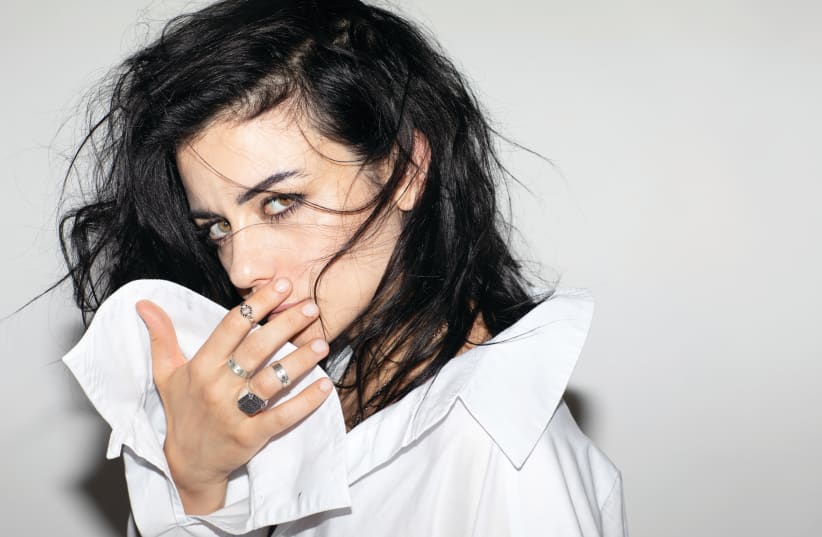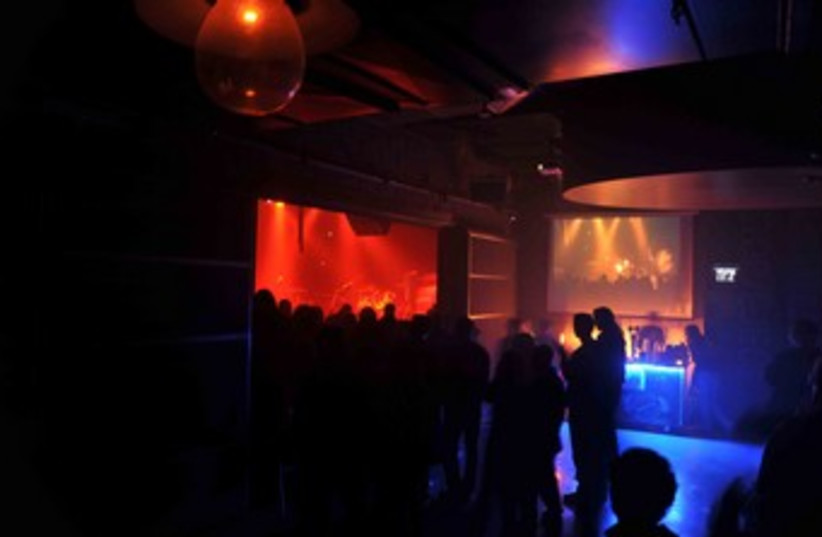What could be a better cure for those post-pandemic blues than getting a longed-for taste of the big wide world?
And if – for, say, financial or Health Ministry directive reasons – you can’t manage to get out there yourself, how about transposing “there” here?
In the case of the Israel Music Showcase Festival (November 24-28), based at the Yellow Submarine in Jerusalem, that means bringing over a bunch of foreign music industry bigwigs, and presenting them with some of the most exciting acts the Israeli music scene has to offer.
The showcase, founded by former artistic director Barak Weiss back in 2010, has provided the principal platform for dozens of our earnest artists, across a wide range of genres and styles, not to mention ethnic baggage, to strut their stuff in front an A-lister roll call from here, there and everywhere.
This year’s festival, in the wake of Weiss’s departure and the 2020 virtual program, features some of our biggest guns in the rock, indie, ethnic, electronic and jazz music spheres, live, including the likes of Ninet, internationally acclaimed saxophonist Eli Degibri, singer-songwriter Rona Kenan and former David Bowie sideman Yossi Fine.
Their international audiences will take in artistic directors, journalists, media professionals, marketing executives and producers from Russia, Canada, France, Austria, Japan, Germany, the United States and elsewhere around the globe.
All told, some 50 guests are flying in to get a taste of what our guys and gals have to offer, which in itself is no mean feat.
“We are hoping all goes well,” says artistic director Hadas Vanunu, when we spoke a week or so before the kickoff.
If nothing else, Vanunu and her colleagues are blessed with excellent timing, with restrictions on the entry of fully vaccinated non-Israelis having been lifted only a short while ago. Vanunu says she had no inkling – or insider information – it would pan out like that, and she just hoped for the best.
“We took a risk. All around us the other showcases decided a while ago to do it virtually again, But we said there was no way we were going to have a digital-based showcase a second time. We did it once, and it was fine, but you can’t carry on like that.”
There’s nothing like a positive mindset to get things moving in the desired direction. “We approached the whole thing with a lot of optimism. And then we began noticing that some [foreign] artists were starting to trickle over here. We started working with all sorts of people, from the Ministry of Health, the Ministry of Culture, the [Population and] Immigration Authority. It was a really tiring process.”
But, it seems, all’s well that ends well. “Fortunately, we started running with it. We began inviting people over, and then we realized that the skies were going to open, and we thought how lucky it was that we went for it.” Luck and, probably, a bit of good old Israeli chutzpah.
Gigs are scheduled for the Yellow Submarine, Haparsah, David’s Tower and Feel Beit in Jerusalem, and Teder in Tel Aviv, with a music industry conference taking place at Abraham Hostel in Tel Aviv on the final day.
BRINGING IN such a large contingent of guests, even without the Covid considerations, would be a challenge, and the logistical maneuvering machinations became even more complex when it was decided to pack all the genre categories into the same programmatic stretch.
Prior to this suitably titled Mix Edition, the showcase was split into two separate lineups, with the jazz and ethnic material presented first, and the rock-pop-indie acts doing their thing, in front of a different incoming industry contingent, a couple of weeks or so later.
This year’s hybrid affair is quite a dome-scratcher for Vanunu and the other festival staffers, but, says the artistic director, it makes practical sense. “We realized that, with all the things you have to deal with, to bring people in from abroad, if we held the showcase with the usual [two-leg] format we’d be completely occupied with that, and wouldn’t have any time for anything else.”
As the Showcase is definitively designed to help get some acts out there that have yet to make it on the bigger stages, it is no surprise to see the likes of retro funk outfit Uzi Navon, burlesque rock group Hamasach Halavan (The White Screen) and rapper Echo on the bill.
But what about Ninet Tayeb? The 38-year-old singer-songwriter, known professionally just by her given name, is possibly the biggest draw on the Israeli pop-rock scene today. Why does she need to make the effort to prove to the Showcase guests she can do the business?
“People tend to think that if artists are so famous in Israel they don’t need the Showcase,” Vanunu elucidates. “That’s simply not the case.”
No doubt, Ninet will wow her audience in the closing slot of the curtain-raising evening – Degibri opens – with a snapshot of some of her English-language repertoire.
But Vanunu expects the local and foreign audience members to get a multi-stratified spectator experience from the hybrid rollout.
“I think people will find the combined program very interesting. It is very colorful and varied.”
She feels it is very much a checks and balances situation. “When you have, say, only jazz or only rock, you can have 30 acts and put on a wide range of shows. When you combine everything, that limits the variety [of each genre] but it gives people a broader offering, spiced up with all sorts of flavors.”
That also means fewer opportunities for local musicians to show festival organizers from abroad what they can do. “I can understand that some artists may be frustrated by that, but I think having a broader selection of music, with everything intermingled, I think that adds color and makes it all more exciting.”
VANUNU SAYS the Showcase has two-way street rewards for all. “This impacts on the Israeli scene, too. Israeli artists understand they have a chance to make it abroad. That really motivates people, and they bring themselves to ‘an export-ready’ state. It is all interconnected.”
The artistic director happily notes that there is no substitute for actual corporeal interfaces.
“Personal encounters are the most important thing,” she says, adding the significance, for our artists, of getting up close to industry shakers and movers. “People abroad have managers and agents. Here that is less prevalent. So when, say, booking agents and festival heads come here, they meet the actual artists. It is more direct and more personal.”
The Yellow Submarine is now looking to up the marketing ante and is planning on establishing an international department designed to prime Israeli acts for exporting their artistic wares to venues and events around the world.
Vanunu believes that may yield benefits that go beyond the strict musical remit. “People come to Israel with all sorts of ideas and political opinions. But, when they get here and hear the music and meet the artists, they learn that the political aspect is the least important.”
For more information: www.yellowsubmarine.org.il

